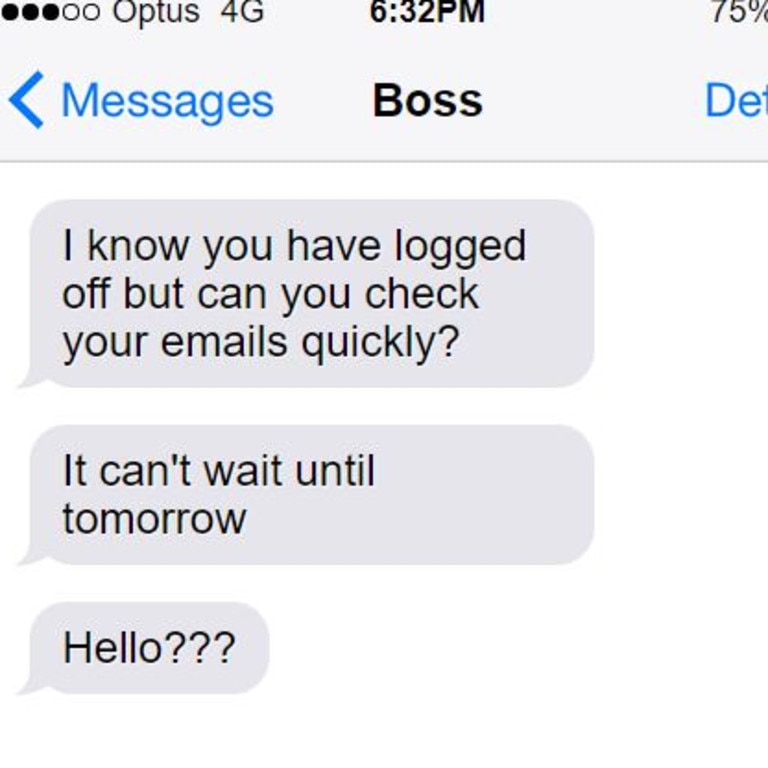Big issue with work from home debate everyone keeps ignoring
There is a glaring problem that people on both sides of the WFH debate seem to be missing – and its one that could cause even more chaos if it isn’t addressed.
The working-from-home versus in-office debate is well and truly raging right now, but it seems there is still one major issue that keeps being ignored by both employers and employees.
At the moment, there is a glaring divide in what people believe the future of working looks like when it comes to either being in the office, working remotely or having a mix of both.
For many workers in the pre-Covid era, being in the office five days a week was the norm, and it likely never even crossed their minds whether it was possible to do their job from home. Sure, there were those that had remote jobs, but it definitely wasn’t the standard.
Then the pandemic came, and lockdowns meant companies were forced to adapt, which made many office workers realise that remote work actually was a possibility and, in many cases, made it a lot easier to have a healthier work-life balance.
So, even once lockdowns and social distancing rules became a distant memory, that new-found flexibility remained, resulting in hybrid working becoming the norm for the many office workers.
But now, companies and business leaders are growing restless. They want staff to return to the office full time and it is creating friction with employees who don’t want to give up their newfound freedoms.

Last week, Amazon CEO Andy Jassy announced staff would be ordered back into the office permanently from January 2025, citing a need to “strengthen our culture and teams”.
Just a few days after that, Australian betting giant, Tabcorp, sent a memo to staff stating all employees would be required to return to the office five days a week, with workers given a four-week period to “adjust” to the change.
NSW government workers have also been ordered back into the office, with Premier Chris Minns sparking backlash in August when he announced remote working arrangements introduced during Covid would come to an end.
However, there is a glaring problem that people on both sides of the debate seem to be missing – and it’s one that could cause even more division if it keeps being overlooked.
Matt Loop, VP and Head of Asia at HR platform Rippling, has issued a warning to those reducing the conversation to the choice between working from home or being in the office.
Speaking to news.com.au, he said there needs to be a “shift” in how both sides are approaching this issue.
“Employers should be transparent about their expectations – after all, it’s within their right to establish how they want work to be done,” he said.
“At the same time, employees also have the right to decide if those expectations align with their needs.
“The focus needs to shift from a binary debate of ‘in-office’ versus ‘WFH’ to finding a balance that benefits both sides.’
He believes the more pressing issue presenting itself right now is about trust and transparency in the workplace.

Employers and business leaders need to be explicit about their expectations and how they want work to be conducted, and, in turn, employees need to be trusted to deliver on those expectations.
Mr Loop said all signs indicate that Australia is at a “critical crossroads” when it comes to the future of hybrid and remote working, noting many businesses are grappling with stagnant productivity and feeling increased pressure from a stalling economy.
He said this is creating a “crisis of trust” between bosses and workers and is a clear sign that this debate isn’t as black and white as some may think.
“Ultimately, the focus should be on building a culture where expectations are clear, trust is strong, and results are what truly matter, ensuring both employers and employees are aligned and satisfied with the work dynamic,” he said.
Impact of Right to Disconnect laws
The recent Right to Disconnect legislation could be a contributing factor in some Aussie businesses making the decision to implement return-to-office mandates, it’s been suggested.
The Right to Disconnect legislation kicked in on August 26 and gives Australian workers the right to ignore bosses who try to contact them outside of work.
Under the new law, staff working at a business with 15 or more employees have the right to refuse contact outside of their working hours, along with the right to refuse to monitor, read or respond to contact from an employer or third party.
The new rules apply within reason and several factors need to be considered before sending your boss to voicemail, but, ultimately, any calls, texts or emails deemed to be “unreasonable” contact can now officially be ignored.
Mr Loop said, while the change aims to “support work-life balance”, it could also inadvertently push employers to bring staff back into the office.
“Managing compliance with these rules can be more straightforward in an in-office environment,” he said.
“Ironically, a move intended to improve work-life balance could lead to less flexibility as a result of it.”
While many workers have branded the new rules as a “positive change” that will help promote a healthier work-life balance, there are still some Aussies who aren’t impressed with the new legislation.

Some have gone as far as to brand the Right to Disconnect rules “ridiculous” and “such a Gen Z law”, while others have claimed those who take the law too literally will not be “doing themselves any favours”.
There have also been concerns about how the change will impact small to medium businesses.
Simon Obee, Employment Hero head advisory of HR and EI Legal principal lawyer, previously told news.com.au that the changes would likely be costly for these businesses.
Mr Obee said SMEs (small-to-medium enterprises) in Australia are already feeling the effects of the increasing burden of red tape and legal compliance, with these new laws adding to the “already overflowing pool of regulations they need to comply with”.
“SMEs often work with tight budgets, making it costly to hire employment lawyers for compliance guidance. Yet, without this expertise, they risk making unintentional errors with significant consequences,” he said, noting that even minor breaches could “spell disaster” for smaller establishments.
Employment Hero chief executive Ben Thompson said that, while the Right to Disconnect law is well intended, it highlights how compliance is crippling small and medium Aussie businesses.
“This situation raises critical questions about the viability of starting and running a business in Australia,” Mr Thompson said.
“Beyond the debates and political manoeuvres, the real impact on employers and Australia’s position in the global employment market seems to be an afterthought.
“The ‘Right to Disconnect’ law, for instance, adds to the compliance burdens, despite its intentions, contributing to a landscape that seems increasingly hostile to business owners.”
Originally published as Big issue with work from home debate everyone keeps ignoring





